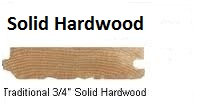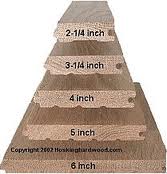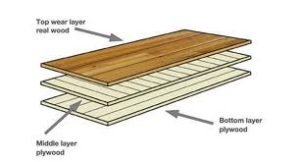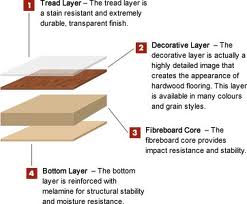Selecting The Right Hardwood For Your Home
Are you thinking about adding hardwood floors in your home?
If so, this could be your next best idea because hardwood flooring is a great investment that increases the value of your home and provides homeowners exclusive beauty, enjoyment, and design tastes that will tend to gravitate towards the quality and natural feel of hardwood floors.
Hardwood floors do not contain man-made chemicals in the wood itself, and have a timeless air of quality.
Compared to manufactured floors (tile, carpet, marble, travertene), hardwood floors still exudes a feeling of permanence and classic quality.
There are three different types of hardwood floors: solid wood floors, engineered wood floors, and laminate flooring.
Here is some information on the three types of wood floors to consider before deciding on which one to install in your home.
Solid Hardwood Floors
Solid wood floors can be sanded and refinished up to 3-5 times. So when looking at the long term investment, solid wood floors will last longer (30 + years) compared to engineered hardwood or laminate flooring because the wood is thicker and can be refinished multiple times (see picture below).
There are also many different species of wood floors to keep in mind; such as cherry, maple, pine, ash, bamboo, santos mahogany, and the most common is oak. Also, look at some of the exotic woods; as they are some of the most durable woods in the world, but can be very expensive to buy.


Engineered Hardwood Floors
Engineered hardwood floors have layers of plywood and a thin top layer of solid hardwood.
Due to this factor, engineered hardwood can be refinished 0-2 times depending on the thickness of the hardwood surface layer
(see picture below).
Many people choose engineered hardwood because it is cost efficient and more important it is very acceptable to the shore line climate.
Because engineered hardwood has multiple layers of plywood, it is able to handle moisture caused by humidity.

Laminate Flooring
Laminate flooring is a multi-layer synthetic flooring product fused together with a lamination process (see picture below).
It can have a core ranging from 4mm up to 12mm which can not be sanded and refinished at all because it is not actual wood.
Due to its durability, moisture block, sound inhibitor, and cost efficiency, laminate flooring is a well known flooring product in today’s residential homes and commercial buildings.
It is also ideal for over cured concrete.
